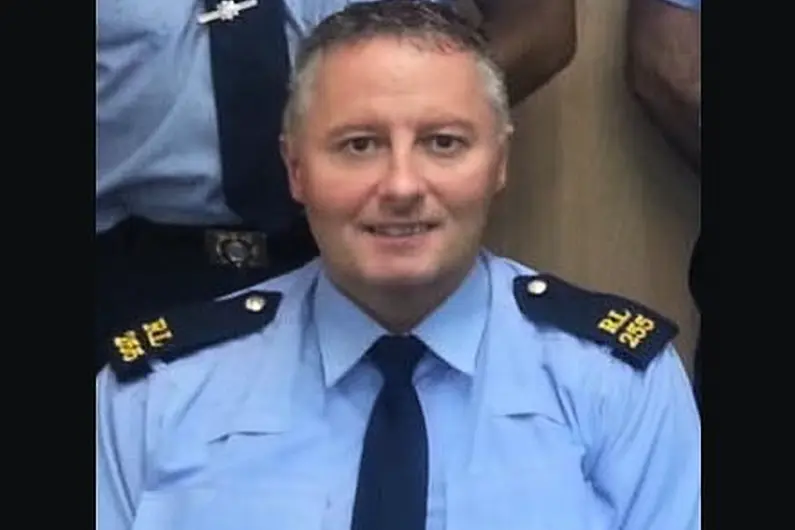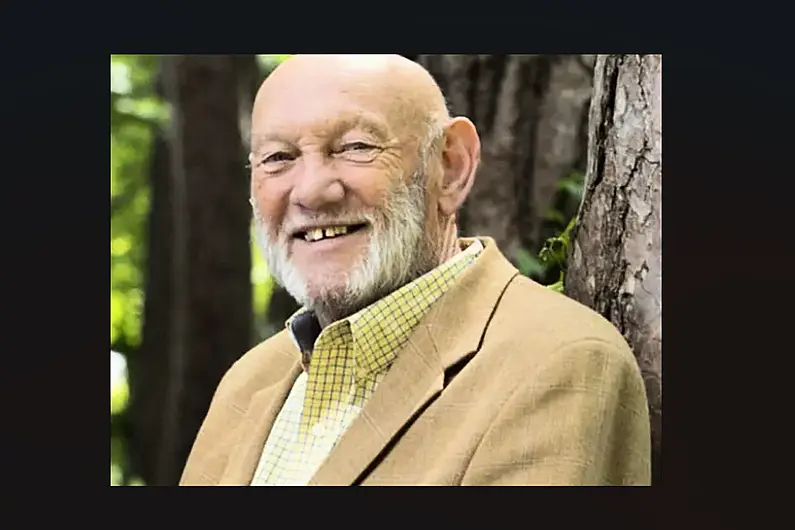A jury at the Central Criminal Court have begun their deliberations in the trial of Stephen Silver, who is charged with murdering Garda Colm Horkan by shooting him eleven times with the garda’s own gun.
Ms Justice Tara Burns yesterday told the jury of seven men and five women that the possible verdicts they could consider relate to capital murder, murder simpliciter, or manslaughter either because of diminished responsibility or self-defence.
She said that a verdict of not guilty is not open to them in the case as Mr Silver has entered a plea to the charge of manslaughter.
Mr Silver (46), of Aughavard, Foxford, Co Mayo, has pleaded not guilty to the murder of Gda Horkan knowing or being reckless as to whether he was a member of An Garda Siochana acting in accordance with his duty at Castlerea, Co Roscommon on June 17, 2020.
He has pleaded guilty to manslaughter and the jury have been told the main issue in the trial is Mr Silver’s state of mind at the time of the shooting.
“This case is somewhat unusual in that probability does come into play in respect of the defence of diminished responsibility. In this very specific defence, the burden of proof rests on the defence and not the prosecution,” Ms Justice Burns said.
Concerning the offence of capital murder, Ms Justice Burns said that the prosecution had to have proved that Mr Silver murdered Gda Horkan, that Gda Horkan was a garda acting in the course of his duty, and that Mr Silver knew this or was reckless to it.
She said that the ingredients of murder are that a person carried out an act to cause the death of another, that the act was unlawful, and it was carried out with the intention of killing or causing serious injury.
She said that certain facts in this case are not an issue, as the defence had made formal admissions at the beginning of the trial that Mr Silver had caused the death of Gda Horkan and the killing was an unlawful act.
She said that Mr Silver had acknowledged this by entering a guilty plea to manslaughter.
“To convict him of murder, you must be satisfied beyond reasonable doubt that he intended to kill or cause serious injury,” said Ms Justice Burns. “Intention does not require premeditation and can be formed in an instant.”
She said if the jury were satisfied that he murdered Gda Horkan, then they must move on to whether it was capital murder.
She said that it was not in dispute that Gda Horkan was a serving member of An Garda Siochana and was on duty that day, but it was disputed that he had been executing his duty when the unlawful act that caused his death occurred.
She pointed out that the defence had questioned what Gda Hokan was doing in his interaction with Mr Silver when he got out of an unmarked patrol car and whether he was acting lawfully.
The judge also said that an issue in the case was whether Mr Silver knew he was a garda or was reckless of this fact.
“If he murdered him knowing or being reckless as to whether he was a garda, he is guilty of capital murder,” she said, adding that if the jury were not satisfied that Gda Horkan was a garda acting in the course of his duty, which the accused knew or was reckless of, then a verdict of guilty of murder simpliciter was still open to them.
She said that the consideration of self-defence cannot arise in capital murder and can only arise in murder simpliciter.
“If you are not satisfied that murder had occurred, the appropriate verdict is guilty of manslaughter,” she told the jury.
Ms Justice Burns said that the defence of diminished responsibility was very unusual in the criminal sphere as the burden of proof moves to the defence and can only apply in murder cases.
“You have to be satisfied that he was suffering from a mental disorder,” she said, adding that Mr Silver does not satisfy the requirements of not guilty by reason of insanity.
She said if the jury were satisfied that his mental disorder was such as to diminish his responsibility for the act, they must find him guilty of the lesser offence of manslaughter.
She reminded the jury that both Dr Brenda Wright, for the defence, and Professor Harry Kennedy, for the prosecution, agreed that Mr Silver had bipolar affective disorder, but they were not in agreement that it was operant at the time of the shooting.
She said that the jury must be satisfied that this disorder was operant at the time for the defence of diminished responsibility to be accepted.
“Was his responsibility substantially diminished by his mental disorder? You have to assess the impact of his mental disorder. This is not trial by expert, this is trial by jury,” she said.
She told the jury that if the defence had satisfied them that Mr Silver’s responsibility was substantially diminished at the time then the verdict is one of manslaughter.
The judge said that the issue of self-defence can only arise if the jury were not satisfied that Mr Silver is guilty of capital murder but were considering guilty of murder simpliciter.
“Did he genuinely believe he was under attack and it was necessary to strike a blow to defend himself? If you are of the opinion that he did not hold this honest belief, then that defence is not there,” she said.
The judge said that the level of force in this case was “clearly excessive”, however if Mr Silver genuinely thought it was not excessive, the law grants him an acknowledgement of that error and reduces the charge from murder to manslaughter.
“If you are of the view that there is a reasonable possibility that he believed he was under threat and was using reasonable force, you must return a verdict of manslaughter,” Ms Justice Burns told the jury.
Before sending them to begin their deliberations, the judge informed the jury of the verdicts available to them.
She said they could return a verdict of guilty of capital murder or guilty of murder. She said that they could be of the view that Mr Silver is not guilty of capital murder but guilty of manslaughter by reason of diminished responsibility, or they could have decided it was murder but he is guilty of manslaughter on the basis of diminished responsibility.
Ms Justice Burns went on to say that the jury could discount the defence of diminished responsibility but consider the issue of self-defence on the charge of murder, albeit excessive self-defence where Mr Silver used no more force than he thought necessary.
She said in these circumstances, they should find Mr Silver guilty of manslaughter on the basis of self-defence.
She said if the jury were not satisfied that he intended to kill or cause serious harm, then the verdict should be guilty of manslaughter as the intention to commit murder had not been established.
The judge reminded them that a verdict of not guilty is not open to them and told the jury that she can only accept a unanimous verdict agreed upon by all 12 of them.
During the trial, the jury heard evidence from Mr Silver that he believed Gda Horkan was “a heavy down from Dublin” who was trying to kill him.
He said that Gda Horkan was wearing a Tommy Hilfiger jacket and “didn’t come across” as a garda. He gave evidence that a struggle ensued between them before he fell to the ground, and in the process of getting up he felt the gun on Gda Horkan’s hip.
“He had his hand on the gun and I had my hand on the gun and we wrestled. The gun came out; I couldn’t tell you who took it out,” said Mr Silver.
He said that he felt Gda Horkan “was trying to kill me”.
“I kept shooting until the gun finished and there was no ammunition left,” Mr Silver said.
The jury also heard evidence from Dr Wright, interim clinical director at the Central Mental Hospital, who said it was her view that Mr Silver’s illness at the time he killed Gda Horkan was such that it impaired his thinking and his judgement and therefore contributed significantly to his actions at that time.
However, witness for the prosecution, consultant psychiatrist Prof Kennedy told the jury that he found “no positive evidence” that Mr Silver had suffered a relapse of bipolar affective disorder at the time he shot dead Gda Horkan.
In the closing statement for the prosecution, Michael Delaney SC said that Mr Silver had a "seething resentment" toward gardaí and the shooting of Gda Horkan was “a deliberate action done with the intent of murder”.
“He fired until the gun was empty. If there had been more bullets in the gun, would he have kept firing? How many bullets until he felt safe in his own mind?” asked Mr Delaney.
In the closing statement for the defence, Dominic McGinn SC said the shooting of Gda Horkan was “not a rational act” and there was no rational basis or motivation for what happened.
“Shooting a garda - that’s not intact social function,” he said, adding the natural conclusion from this was that Mr Silver was in a relapse of his bipolar affective disorder at the time.
The jury retired to consider their decision at 3:40pm yesterday afternoon and will continue their deliberations today..





